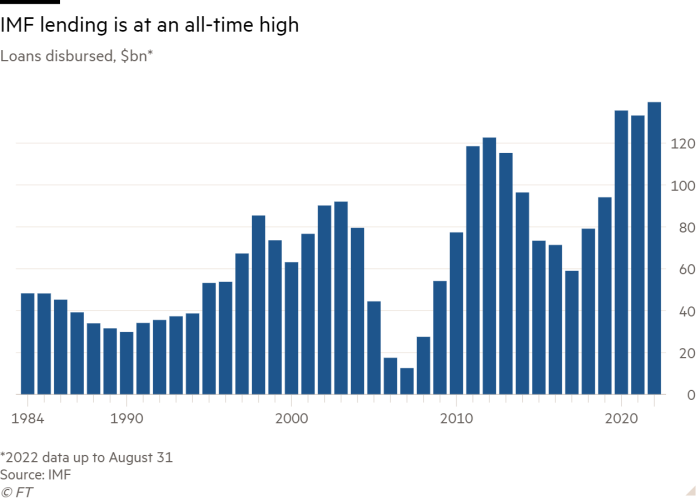How weak is Canada’s financial system to break down within the housing market?
6 min read
Shaky housing market and excessive family debt level to a extra pronounced recession than many are calling for

Article content material
By David Rosenberg and Julia Wendling
Commercial 2
Article content material
With the Financial institution of Canada’s aggressive rate-hiking cycle effectively underway regardless of a shaky residential actual property sector and excessive ranges of family debt, it’s no secret that we consider the Canadian financial system is headed for a extra pronounced recession than many are calling for. However simply how weak is the general financial system to a collapse within the housing market?
Article content material
Our evaluation signifies {that a} reversion to the imply with respect to housing-related consumption expenditures and residential funding would result in a 1.4 per cent drop in actual gross home product (GDP), and remember the fact that this can be a best-case situation, since a pullback after years of extra usually results in such measures going by the imply to the draw back. As well as, a normalization of employment within the development business might result in as much as a 1.4-percentage-point bounce within the unemployment fee to six.3 per cent from the present stage of 4.9 per cent.
Commercial 3
Article content material
Carnage may very well be rather more extreme than even we anticipate
Whereas these figures are regarding, to say the least, the carnage may very well be rather more extreme than even we anticipate, provided that family steadiness sheets stay in poor form and that the financial system’s publicity to the true property market is close to all-time highs, with actual property as a share of disposable earnings at a document 563 per cent and the share of recent mortgages with variable charges at 55 per cent.
In latest many years, the housing market’s share of GDP has been steadily gaining floor, with the mix of actual estate-related consumption expenditures and residential funding rising to 11.4 per cent right now from a trough of seven.7 per cent in 1995. And whereas the housing market nationwide has undergone an prolonged bull run, we consider the present rate-hiking cycle by the Financial institution of Canada mixed with weak fundamentals are prone to take their toll within the coming months.
Commercial 4
Article content material
We determined to skim by the historical past books and assess what the hit to actual GDP could be ought to these two key housing-sensitive parts revert to the long-run imply. As for the consumption part of the equation, housing-related expenditures must fall to a 5.3-per-cent share of consumption from 6.1 per cent, whereas residential funding could be pared again to 32 per cent of total funding from 36 per cent. All in, these two declines mixed would result in a 1.4 per cent drop in actual GDP. That mentioned, as talked about above, we consider this can be a pretty conservative estimate. It’s hardly probably that these measures will merely imply revert after years of overheating.
The same narrative has unfolded inside the confines of the labour market, as we’ve seen an unlimited improve within the proportion of development employment as a share of whole employment over the previous few many years as effectively — rising from roughly 5 per cent in mid-1998 to 7.9 per cent now (firmly above the 7.4-per-cent peak in November 2008). Ought to this share revert to the long-run common of 6.4 per cent, some 283,000 workers within the business may very well be moved onto the sidelines, resulting in an uptick within the unemployment fee to six.3 per cent (roughly in step with the jobless fee prevailing in mid-2008) from the present 50-year low of 4.9 per cent.
Commercial 5
Article content material
There are additionally a number of further elements that can probably intensify the harm from a housing market collapse and be sure that the impacts are widespread.
With actual property as a share of disposable earnings at greater than 560 per cent, reaching an all-time excessive within the first quarter of 2022, customers’ sensitivity to a pullback within the housing market is prone to be heightened. Because of this, the hit to consumption (and, thus, GDP) from falling residential actual property costs by way of the wealth impact is prone to be magnified, thus making certain the approaching recession is neither quick nor shallow.
-

David Rosenberg: Cyclical sectors subsequent ‘shoe to drop’ — and the TSX is particularly weak
-

David Rosenberg: The inventory market is signalling {that a} recession is coming
-

David Rosenberg: 4 causes company bonds have grow to be extra interesting than equities
Commercial 6
Article content material
Moreover, not like within the U.S. the place fixed-rate mortgages prevail, the share of recent householders choosing variable charges has climbed to a whopping 56 per cent within the first couple of months of 2022 (up from roughly seven per cent firstly of 2020), that means client spending prospects are extremely weak to the Financial institution of Canada’s hawkish stance resulting from abnormally excessive ranges of interest-rate sensitivity.
Lastly, as we’ve explored beforehand, Canada’s comparatively excessive ranges of family debt will finally come at a value to future GDP progress and hinder any ensuing financial restoration, notably as debt-servicing prices proceed their ascent in tandem with rates of interest.
With a record-high publicity to the weak housing market, the pullback in residential actual property costs that’s prone to proceed because the central financial institution carries on with its interest-rate-hiking cycle will hit the Canadian financial system tougher than the consensus economics neighborhood is presently calling for. Conservatively, we estimate a 1.4-per-cent hit to actual GDP is within the playing cards, in addition to an uptick within the unemployment fee to six.3 per cent from 4.9 per cent, a drawdown that may very well be much more pronounced than the historic data present given the elevated publicity to the housing market, the excessive proportion of recent debtors choosing variable fee mortgages and traditionally excessive ranges of family debt.
Commercial 7
Article content material
Because of this, we stay steadfast in our perception that the Canadian financial system is headed for bother and the Financial institution of Canada’s financial coverage tightening marketing campaign might be stopped useless in its tracks (and even reverse course) earlier than year-end. Our recommendation is to keep away from the loonie and stay bearish on actual estate-related retailers and residential enchancment.
David Rosenberg is founding father of unbiased analysis agency Rosenberg Analysis & Associates Inc. Julia Wendling is an economist there. You possibly can join a free, one-month trial on Rosenberg’s web site.
_____________________________________________________________
When you like this story, join the FP Investor E-newsletter.
_____________________________________________________________






